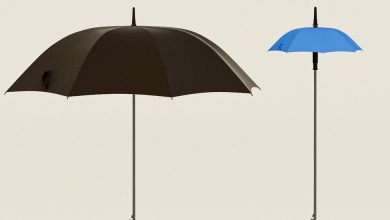Rudeness Is On the Rise. You Got a Problem With That?

Some time ago I tried to write a sympathetic column about women named Karen, people who — through no fault of their own — now find their names synonymous with a particular kind of bad behavior associated with indignant white women of privilege. I posted an open call on Facebook, asking women named Karen to tell me their stories. A few people took the assignment at face value, but, in much greater numbers, I received scathing letters of contempt.
The gist of all these responses was accusatory: How dare I have sympathy for anyone named Karen? Was I, these writers wrote in various but meaner ways, blind to systemic racism, classism and white privilege? Was I, one writer queried, a complete idiot?
I shouldn’t have been surprised by the vitriol. It seems as if many people are just waiting for an opportunity to express the pent-up rage from four years of Donald Trump, two years of Covid, 21 years into the 21st century. It reminds me of the remarkable scene in the reboot of David Lynch’s “Twin Peaks” in which two brothers, ringing a doorbell in a strange neighborhood, happen to witness a mind-blowing gun battle, provoked by nothing more than a couple blocking someone’s driveway with their van.
“People are under a lot of stress, Bradley,” one brother blithely tells the other. Indeed.
So how do we respond to a world under stress, a culture in which the guardrails of so-called civility are gone? The evidence of that stress is everywhere. In airports, and then in the skies, you can find airline passengers angry about wearing masks, angry about inspection of firearms in their carry-ons, seemingly angry about, well, everything. Close to home, things aren’t much better, and it comes from both sides of our ideologically divided society. Take the growing online culture of heckling the vaccine skeptics who have died from Covid, and their families. As Dan Levin asked in his New York Times article last weekend about the phenomenon, is that schadenfreude or a public service?
Nationwide, incivility and rudeness have been on the rise in all aspects of life — except at work — for the last several years. Even in 2019, 93 percent of people polled across the country reported that uncivil behavior was increasing; 68 percent called this a major problem. And that was before the pandemic and the Jan. 6 insurrection. Since then, things have clearly gotten worse.
I’m most interested in the 32 percent who told pollsters it was not a major problem. Was it their sense that a ruder world is really just a more truthful one?
To some degree, I think that’s true. There was a time when frankly expressing the truth of your heart was considered, by some, to be rude. As a queer American, I’m grateful to live in an era in which I can live my truth out in the open. Maybe some people find my lack of shame about being trans offensive, but I don’t lose sleep about their sensitivities. Sometimes one person’s rudeness is another one’s truth.
But there’s a difference between a lack of shame and shamelessness. When I see the guy who drives around my neighborhood in a pickup adorned with flags that bear a particularly obscene suggestion regarding President Biden, it makes me simultaneously furious and sad. Maybe this is his intention. It makes me wonder how we’ve reached a point where such displays go unimpeded, where meanness rarely has consequences.
It’s one reason I admit I find videos of mask-refusing passengers being taken off planes in handcuffs quite satisfying. Here, just once, we can see the consequences of incivility. I have a similar sense of satisfaction when I see footage of the Jan. 6 insurrectionists being given prison sentences. I can’t turn away when the insolent are reduced to tears. I’m sorry you’re unhappy, I want to say, in the same tone of voice I once used with my preschool-aged children. But maybe you should have thought about the consequences before you tried to violently overthrow the government of the United States while wearing a Viking hat.
And yet I worry: By indulging in the pleasure of someone else’s tears, am I the one showing incivility? I mean the dark kind described by Flannery O’Connor’s character the Misfit in her story “A Good Man Is Hard to Find,” a person who says he finds “no pleasure but meanness.”
Such dips and dives into meanness make me think of my mother (who would have turned 105 over Thanksgiving weekend). It was her opinion that forgiveness not only restored dignity to those who have lost it; it also gave one a certain power over the meanies of the world. She always thought the best of people, whether or not they actually deserved it.
Once, after I came out as trans, we went out to dinner together. That night a transphobic waiter made it clear what he thought of us. I was used to this kind of cruelty, but it hurt to see it leveled at my dignified mom.
She was unfazed. Later I asked her, wasn’t it embarrassing to be treated like that, by a stranger, in a place where we were paying customers?
“Oh, Jenny,” she said. “You know he didn’t really mean it.”
Actually, I wanted to tell her, I think he did mean it. But then, she wasn’t really talking about the man before her; she was talking about a better version of him, a self he had not been able to become, but in whom she had not lost faith. He was not yet that man. But, she felt, in receiving the gift of kindness, and of grace, maybe he still had a shot.
The Times is committed to publishing a diversity of letters to the editor. We’d like to hear what you think about this or any of our articles. Here are some tips. And here’s our email: [email protected].
Follow The New York Times Opinion section on Facebook, Twitter (@NYTopinion) and Instagram.





